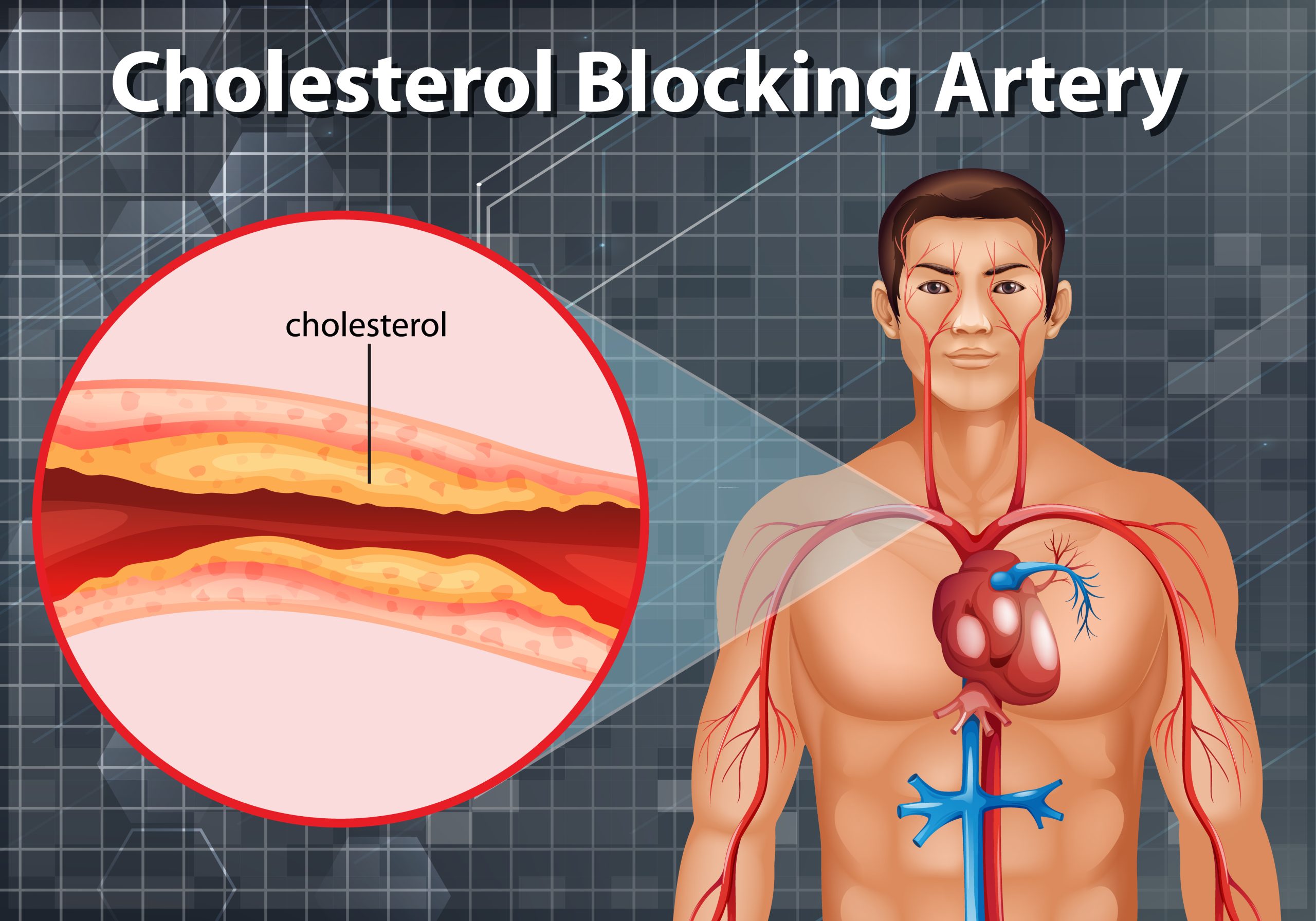Understanding cholesterol imbalance: Types and Implications

Understanding the different types of high cholesterol
17 Jun 2024
Often, people consider cholesterol a culprit for issues related to the heart. But that’s not entirely correct. Cholesterol helps in building cells, producing hormones, and performing other functions. But, the problem arises when the cholesterol levels are out of balance. In this piece, we will discuss the types of high cholesterol, the diet required for them, and the risks that come with it. Let’s begin, shall we?
What is Hypercholesterolemia?
Hypercholesterolemia is when you have high cholesterol levels in your bloodstream. It is identified when there are increased levels of lipids in your blood, majorly called cholesterol and triglycerides. Out of the several types of hypercholesterolemia, familial hypercholesterolemia is a genetic disorder that may unexpectedly increase cholesterol levels from a very young age.
What is High LDL Cholesterol?
LDL or Low-density lipoprotein cholesterol is also known as bad cholesterol. The main reason behind this is, that high LDL levels can develop a plaque in your body that narrows down your arteries. Naturally, it becomes difficult for the blood to flow through, leading to heart-related problems, stroke, or a heart attack.
What are the causes of High LDL Cholesterol?
- Genetics: Familial hypercholesterolemiacan sometimes be responsible.
- Poor diet: Consuming saturated and trans fats.
- Lack of Exercise: Not being as physically active as your body needs.
- Smoking: Smoking harms the walls of your blood vessels, making it easier for LDL cholesterol to accumulate and develop into plaques.
- Obesity: Excessive body fat.
What is High HDL Cholesterol?
HDL, or High-density lipoprotein cholesterol, is also known as good cholesterol as it helps eliminate LDL cholesterol from your blood. High levels of HDL can protect you against heart diseases but an extremely high level of HDL can bring up risks as well.
What are the causes of High HDL Cholesterol?
- Genetics: Having enetically high levels of HDL.
- Exercise: Performing physical exercise daily can boost HDL.
- Healthy Diet: Consuming foods with healthy fats.
Focusing on a High-Cholesterol Diet
Your diet is one of the major factors that can help determine the management of your cholesterol levels. Let’s understand what foods you should consume and what foods you should avoid having in a high-cholesterol diet.
Foods to add to your diet:
- Whole grain:Some soluble fibre helps lower LDL levels.
- Healthy fats:Some healthy fats have omega-3 fatty acids, which helps increase HDL.
- Fruits and veggies:They have high fibre and low calories that lower your LDL.
- Legumes:Plant-based proteins are great for your health.
Foods to remove from your diet:
- Cholesterol-rich foodsLhough dietary cholesterol has the least to do with blood cholesterol, it is best compared to fats, it’s still recommended to avoid eating high-cholesterol foods.
- Fats
- Trans fats:Some sources are baked and fried food dishes.
- Saturated fats:Dairy products like butter and cheese are the main source.
Habits to Inculcate for a High Cholesterol Diet
- Have homemade food as frequently as possible; that way, you get to control what ingredients you use.
- Be careful and read the labels for everything; you may come across hidden fats and sugars.
- Be mindful of what you eat, and eat it in moderation.

What are the risks of High Cholesterol?
High cholesterol levels, especially high LDL cholesterol, can pose quite serious risks to your health. Let’s dig deeper:
- Stroke
High cholesterol tends to form blood clots in your arteries. This blocks the flow of blood to your brain, causing a stroke. Strokes can be discomforting and at times also lead to death.
- Heart Diseases
Heart diseases can occur when plaque develops in your arteries, bringing down the blood flow to your heart. It leads to chest pain and a higher chance of a heart attack.
- High Blood Pressure
Blocked or narrowed arteries result in more work for your heart because it has to pump the blood harder so it reaches all of your body. It leads to increased blood pressure putting a strain on your cardiac system.
- Type 2 Diabetes
High cholesterol levels can give birth to complications that can lead to diabetes or similar metabolic conditions.
- Peripheral Artery Disease (PAD)
This happens when plaque develops in the arteries that deliver blood to your legs. Resultingly, you may have trouble walking and have other severe complications.
Managing High Cholesterol Risks
- The first and foremost step is to adopt a healthy lifestyle with a good diet, physical exercise, weight management, and more that help reduce your risks.
- Ensure regular health checkups to avoid any potential problems
- Take medications as prescribed by your doctor. Sometimes, lifestyle modification alone cannot do all the work. Some medications may be essential to control cholesterol levels.
…
We hope you got a good read on the different types of high cholesteroland how you can tackle them. Keep you focused on leading a life that is active and healthy. To help you in this mission, TatvaCare presents GoodFlip app. It is our mobile-based application for individuals looking for help to manage their chronic health conditions. GoodFlip can help you in many ways. The app includes features such as health assessments, lab test bookings, medication reminders, vitals monitoring, as well as personalised diet and exercise coaching to help you get on the path of a healthy lifestyle. Download and create a free account on GoodFlip and take charge of your cholesterol actively. To read more about high cholesterol, watch this space. You can also get in touch with us at +919974042363 or drop a mail at support@tatvacare.in.

Medically reviewed by
Dr. Devina Aswal 
MBBS, DDM, FCR, CIC
Recent Blog
- A Look Back at What Really Mattered in Clinics This Year
- Virtual Twin Patients: What Indian Doctors Can Learn from the Future of Surgical Planning
- Can AI Deskill Doctors? The Lancet Warns of Risks – Here’s How You Stay in Control
- What India’s AI Push Means for Small Clinics
- Top 5 Myths Doctors Believe About Going Digital and Why They’re Wrong
Archives
Categories
- Asthma (20)
- Diabetes (15)
- Fatty Liver (20)
- High Blood Pressure (2)
- High cholesterol (2)
- Hypertension (2)
- Insulin Resistance (1)
- Obesity (8)
- PCOS (6)
- TatvaPractice (19)
Let’s Connect
Quick contact

